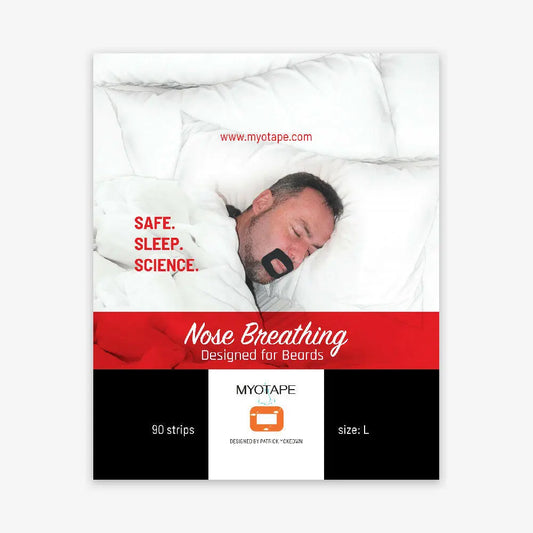Many of us think we’re getting enough sleep, but our bodies aren’t truly resting the way they should. The good news? You can change that.
It all starts with understanding your sleep performance and how well your body recovers and recharges each night.
Sleep performance has become a popular metric for anyone looking to improve their rest and overall well-being.
In this article, we’ll explore what sleep performance means, why it matters, and how you can start improving yours tonight.
What Is Sleep Performance and Why Is It Important?
Sleep performance, also known as your sleep score, measures how well your body rests, recovers, and recharges each night.
It’s not just about how many hours you sleep, but how effectively that sleep supports your physical and mental health.
A high sleep performance score means your sleep is truly restorative. You wake up with more energy, better focus, and a stronger body that can handle the day ahead.
So, why is sleep performance important? Because it directly affects your recovery, focus, and long-term well-being.
When your sleep performance is high, your body repairs tissues, balances hormones, strengthens your immune system, and restores mental clarity.
Low sleep scores or performance, on the other hand, can lead to fatigue, poor focus, mood changes, and slower recovery after exercise or stress.
For athletes, sleep performance and recovery are deeply connected. Sleep is when the body rebuilds muscle fibers, restores energy, and strengthens endurance.
That’s why sleep performance for athletes is often tracked as carefully as training sessions. Better sleep leads to better recovery, faster progress, and stronger performance both physically and mentally.
Sleep Performance vs. Sleep Quality
You might wonder what the difference is between sleep performance and sleep quality.
Sleep quality focuses on how restful and deep your sleep feels. It looks at things like how long it takes you to fall asleep, how often you wake up, and whether you stay asleep through the night.
Sleep performance, on the other hand, measures how well your sleep meets your body’s needs. You could spend eight hours in bed, but still wake up tired if your sleep efficiency is low.
Someone else might sleep for six hours but wake up refreshed because their sleep was more consistent and restorative. In simple terms, sleep quality is about how good your sleep feels, while sleep performance shows how well your sleep actually works for your body.
How to Measure and Track Sleep Performance
If you’re wondering how to measure sleep performance, modern technology makes it easy. Devices like WHOOP, Oura Ring, and Apple Watch track your sleep using detailed sleep performance metrics.
For example, WHOOP’s Sleep Performance Score uses several key factors:
- Sleep Sufficiency: How much sleep you got versus how much your body needed.
- Sleep Consistency: How regular your bed and wake times are.
- Sleep Efficiency: The percentage of time in bed you actually spent asleep.
- Sleep Stress: How much stress your body experienced during the night.
By combining these metrics, WHOOP gives you a clear picture of your rest and recovery. Tools like the Sleep Planner even suggest an ideal bed and wake times to help you improve your score.
Similarly, Oura uses a Sleep Score (0–100) to show how well you slept. A score of 85 or higher means your sleep is optimal, 70–84 is good, and below 70 suggests there’s room for improvement.
If you’re trying to understand how to track or calculate your sleep performance, these tools do the math for you, giving you insights into your total sleep, REM, deep sleep, and efficiency.
What Is a Good Sleep Performance?
So, what is a good sleep performance? Generally, a score between 85–95% is considered optimal. This means your sleep duration, timing, and recovery align well with your body’s needs.
Scores between 70–84% indicate decent rest but some areas to improve, perhaps your bedtime varies too much, or you’re not getting enough deep sleep.
A score below 70% usually signals issues such as poor sleep efficiency, stress, or inconsistent sleep patterns.

Why Is My Sleep Performance Low?
If your sleep performance score is low, don’t panic. It’s your body’s way of asking for adjustments. Common causes include:
- Stress and anxiety that keep your body alert.
- Late caffeine or heavy meals before bed.
- Inconsistent sleep schedules or late-night screen time.
- Environmental factors like noise, light, or room temperature.
- Poor breathing habits, such as mouth breathing, which can lead to snoring, reduced oxygen efficiency, and disrupted deep sleep cycles.
How to Improve Sleep Performance Score
To improve your sleep score or performance, you need to make simple but effective changes that support your body’s natural rhythm and recovery.
Now, let us find out some of them.
1. Support nasal breathing with MyoTape
Breathing through your nose helps your body relax and stay in deeper stages of sleep.
Mouth breathing can cause dryness, snoring, and restless nights that leave you feeling unrefreshed. But it is not easy to breathe nasally while you are asleep.
MyoTape gently encourages nasal breathing during sleep by keeping your lips closed safely and comfortably.
This habit helps improve oxygen flow, reduce nighttime awakenings, and support more restorative sleep.
2. Practice Buteyko breathing exercises
The Buteyko Method teaches slow and light nasal breathing that calms your nervous system.
Practicing these exercises before bed helps slow your heart rate and quiet your mind.
This relaxation makes it easier to fall asleep and stay asleep through the night.
With regular practice, your sleep performance and energy levels can improve noticeably.
3. Get morning sunlight
Natural light in the morning helps set your body’s internal clock.
Try to spend 5 to 10 minutes outside soon after waking, even if it’s cloudy.
Morning sunlight helps your body produce energy hormones during the day and melatonin at night.
This simple habit makes it easier to fall asleep naturally and wake up refreshed.
4. Have a consistent sleep schedule
Your body thrives on routine and consistency.
Going to bed and waking up at the same time every day trains your internal clock.
This makes it easier to go to sleep quickly and wake up without feeling groggy.
Keeping a steady sleep schedule also improves the quality of your sleep cycles.
5. Create a dark and quiet sleep environment
A dark and quiet room helps your brain recognize that it’s time to rest.
Use blackout curtains or an eye mask to block out light.
If noise is a problem, try earplugs or a white noise machine.
A cool, calm environment supports deeper and more restorative sleep.
6. Limit screen time before bed
The blue light from phones and tablets can delay your body’s release of melatonin.
Try turning off screens at least one hour before bedtime.
Use that time to read, stretch, or practice slow breathing instead.
Reducing screen exposure helps your mind relax and improves sleep performance.
7. Watch your caffeine and alcohol intake
Caffeine can stay in your system for hours and make it harder to fall asleep.
Try to avoid coffee, tea, or energy drinks after midday.
Alcohol may make you sleepy at first, but it often disrupts deep sleep later in the night.
Limiting both helps your body maintain a natural and restful sleep rhythm.
8. Avoid heavy meals and too many fluids before bed
Eating large meals late at night can cause discomfort and indigestion.
Try to finish dinner at least two hours before going to bed.
Limit how much you drink before sleep to avoid waking up for bathroom trips.
These small adjustments help you stay asleep longer and feel more rested.
9. Move your body during the day
Regular movement during the day helps you fall asleep more easily at night.
Aim for about 30 minutes of moderate exercise most days of the week.
Activities like walking, yoga, or cycling can improve your mood and sleep quality.
Avoid intense workouts right before bed, as they can make you feel too alert.
10. Relax just before bed
Stress and anxiety are two of the most common reasons people struggle to sleep.
Creating a calming bedtime routine can help signal your body to slow down.
Try gentle stretching, mindfulness, or slow breathing before bed to relax your mind.
Even a few minutes of quiet reflection or gratitude journaling can reduce tension and help you drift into deeper, more peaceful sleep.
Get MyoTape to Upgrade Your Sleep Performance
If you want to raise your sleep score, start by improving your breathing at night.
MyoTape, developed by breathing expert Patrick McKeown, helps you maintain gentle nasal breathing throughout sleep to support deeper rest and recovery.
Thousands of MyoTape users consistently report higher sleep scores, fewer awakenings, and greater recovery.

''The biggest difference I've noticed since I started wearing MyoTape is in my sleep efficiency scores on WHOOP. I take less time to fall asleep now and rarely wake up during the middle of the night.'' -
Its soft, skin-safe design wraps around the lips rather than sealing them, making it comfortable, effective, and safe for everyone.
By promoting nasal breathing, MyoTape improves oxygen balance, sleep efficiency, and overall sleep performance.
Go to the MyoTape online shop, and select from a variety of options designed for everyone, including mouth tape for kids, mouth tape for adults, mouth tape for sensitive skin, and mouth tape for beards.








